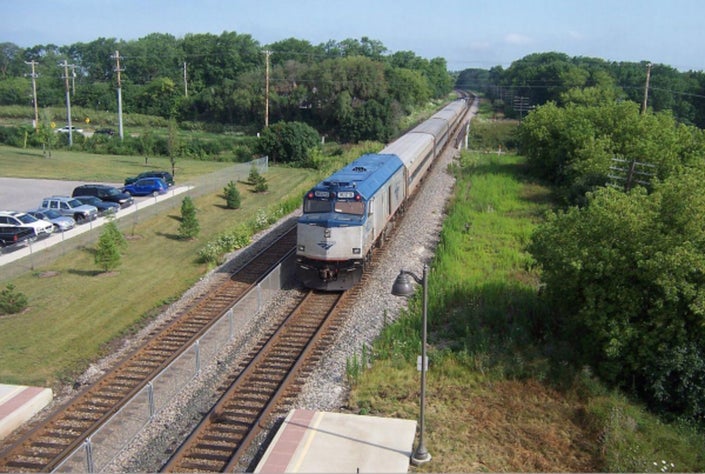Sponsored post: The Transportation Research Board’s 99th Annual Meeting will be held in Washington, D.C. from Jan. 12-16, 2020. Click here for more information.
Wisconsin is trying to stop its brain drain — and transit can provide the plug ... if state lawmakers would only embrace it.
Nine percent of prime-working-age adults moved out of Wisconsin for “jobs and city living” between 2010 and 2014, according to a new report by the Milwaukee Office of Workforce Development. The problem is so dire Milwaukee just approved a 16-person Millennial Task Force to figure out how to get young people to stay.
One answer is clearly unshackling communities from car culture. Earlier this year, the Wisconsin Public Interest Research Group reported that young people want to live in “places that offer extensive and safe walking and biking options, as well as clean, fast, and efficient public transportation networks. Moreover, this preference for multimodal lifestyles appears to be influencing young people’s decisions about where to live and work."
So how is the Badger State doing on investing in transit? Not very well.
The state’s new governor, Democrat Tony Evers, is a lukewarm ally, transit advocates say, and the Republican-controlled legislature has fought him, giving Evers only minor wins for transit.
On the down side, the former teacher who made “Fix the Damn Roads” his campaign rallying cry, came into office and promptly hired a former highway lobbyist to head the Wisconsin Department of Transportation. The GOP did allow Evers to make state transportation grants available to transit projects and up the state transit budget by two percent. It helps, but doesn’t even make up for years of cuts under Evers's predecessor, Republican Scott Walker.
Walker famously axed Complete Streets initiatives, light rail, commuter rail, dedicated bus lanes, and most famously, a paid-for Obama-era high-speed rail that would have connected Madison and Milwaukee.
As a result of years of neglect, “funding is the most urgent transportation issue right now, and transit is part of that,” said Curt Witynski, deputy director of the League of Wisconsin Municipalities. “The big issue is how do we fund the operations, the purchases of buses, maintaining routes 24/7 including weekends — all these things are being discussed in communities that provide transit.”
Before Walker, a fiscal argument in favor of transit was often a winning one for conservatives. The state's longest-serving governor, Republican Tommy Thompson, loved trains and launched the high-speed rail project that Walker later killed. Unfortunately, current Assembly Speaker Robin Vos, who represents Racine County, is leading the Republican majority with Walker’s antagonistic playbook. Republicans turned a Milwaukee streetcar project into a political “tug of war” in an attempt to retain state grant funds for roads only, and killed a bill Dems proposed to let Milwaukee, Racine, and Kenosha counties create a regional transit authority, a power Walker revoked in 2011.
Evers did notch a small win for trains: In March, the state legislature approved $35 million to boost the Amtrak Hiawatha line service between Milwaukee and Chicago, a segment that’s so popular it’s consistently packed beyond capacity. Republicans then voted down $10 million to expand service to the Twin Cities in Minnesota. There are no other rail projects on the horizon.
“High speed rail is just a distant dream right now,” says Deb Nemeth, Director of nonpartisan urbanist advocacy group 1000 Friends of Wisconsin. “Without federal funds, Wisconsin, Illinois, and Minnesota would need to come together to raise the funds.”
There’s a bit more happening at a local level, beyond Milwaukee’s streetcar. Madison’s new mayor, Satya Rhodes-Conway, created a vehicle registration tax to fund new Bus Rapid Transit, which she thinks is “the future.” Last year Eau Claire landed a federal TIGER grant to fund new buses and a downtown transit center. Under Trump, such money has mostly been funneled into road projects. Smaller jurisdictions like Oshkosh, Appleton, Sheboygan, and Janesville also got some federal funds to improve their bus systems.
With a Democratic governor who campaigned on roads, a Republican majority committed to carrying on Walker’s “all-out war on urbanism,” and little support from the feds, Wisconsin’s transit advocates aren’t feeling very optimistic. For now, the task of creating the car-free future many young people want will mostly fall on local jurisdictions to try to fund themselves.
Or else the brain drain will continue.






